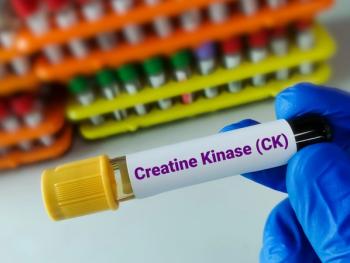
Cumberland Pharmaceuticals Reports Promising Results Itetroban for DMD Patients
The company is evaluating whether the drug, which targets cardiac complications, might be used treat patients with other diseases, such as systematic sclerosis.
In the study, the Nashville-based company assessed
“The FIGHT DMD trial results represent a breakthrough for DMD patients because it’s the first successful Phase 2 study specifically targeting cardiac complications —the leading cause of death in this population,” a spokesperson for Cumberland Pharmaceuticals told MHE in an email. “The study demonstrated that ifetroban not only prevented the typical decline in heart function but actually improved cardiac function, with high-dose treatment showing a 3.3% improvement in LVEF [left ventricular
In fact, when compared with age-matched, background-therapy-matched and LVEF-at-baseline-matched natural history controls, the benefit was even more pronounced, showing a 5.4% improvement versus a 3.6% decline. Even more importantly, the treatment was well-tolerated with no serious drug-related events.
.As a once-daily oral medication, ifetroban offers a practical treatment option that could meaningfully alter the course of cardiac complications in DMD patients.
“This addresses a critical unmet medical need, as current treatments can help manage some DMD symptoms but don't specifically target the cardiac complications,” the spokesperson said.
A prior study at Vanderbilt University Medical Center indicated that ifetroban offers protection against cardiomyopathy in various preclinical models of muscular dystrophy. The findings from that research were published in the
Building on these encouraging results, Cumberland Pharmaceuticals became the first recipient of a clinical trial grant from the FDA Office of Orphan Products Development for Duchenne muscular dystrophy.
The company continues to collect long-term data through the Phase 2 study’s optional open-label extension phase.
“These additional results will be analyzed and shared when available, providing valuable insights into ifetroban's long-term safety and efficacy profile in DMD patients,” the spokesperson said.
Up ahead, Cumberland Pharmaceuticals plans to conduct further data analysis and complete a full study report in preparation for an end-of-Phase-2 meeting with the FDA.
“The company has secured a growing portfolio of patents for the DMD indication, positioning us well for future development,” the spokesperson said. “The end-of-Phase-2 meeting will be crucial for determining the next steps for product development and commercialization strategy.”
While the primary focus remains on DMD-related heart disease, Cumberland is already exploring ifetroban's potential in other conditions.
“We currently have Phase 2 clinical studies underway evaluating ifetroban in patients with systemic sclerosis and idiopathic pulmonary fibrosis, demonstrating the broader potential applications of this therapy,” the spokesperson said.
Newsletter
Get the latest industry news, event updates, and more from Managed healthcare Executive.























